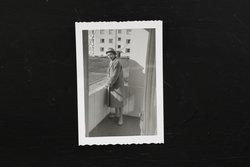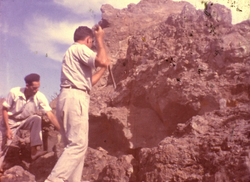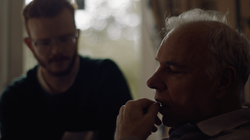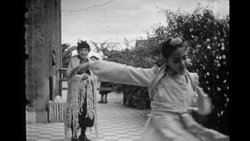AWARD WINNERS 2021
Jury: Ana Estévez Lavandeira, Tânia Dinis, Tiago Bartolomeu Costa

Best Feature Film Award
NEITI AIKA / LADY TIME
DE ELINA TALVENSAARI
Jury Statement:
«We were surprised by how, through the reconstruction of culture and material memory, the film speculates fictions and emotions to create a narrative about what makes us anonymous and forgettable. The protagonist, who had a name and a history but could continue to exist without being remembered, is rescued from a collective oblivion, and a biography is returned to her through a thorough investigation, almost of novelistic analysis that, through the force of cinema, gains greater contours, namely for being able to convey in that disappearance, from which cinema saves it, our own memory and existence.»

FEATURE FILM HONORABLE MENTION
DE LOS NOMBRES DE LAS CABRAS / ON THE NAMES OF THE GOATS
DE MIGUEL G. MORALES E SILVIA NAVARRO
Jury Statement:
«Through the work of editing and sound design, based on the rich ethnographic material of the anthropologist Luis Diego Cuscoy; and on how, in the manner of an archaeological investigation, cinema takes a critical look at the processes of elaboration of historical reports.»

Best Short Film Award
MY DAD'S VIDEO DIARY
DEBORA BOTTINO
Jury Statement:
«The film works with the idea of the disappearance of memory, and the recognition of affection, through the use of images that are also at risk of disappearing, due to the obsolescence of technology. In the importance of keeping memory, physical and emotional, the film confronts us with the ethics of representation - for whom, about what and how - without ever losing focus on the intimate relationships that visual mediation and filial relationship established.»

SHORT FILM HONORABLE MENTION
LUI E IO
GIULIA COSENTINO
Jury Statement:
«The dynamism imprinted by the montage, in its management of archival material, underlines the importance of reviewing our place of belonging in the light of collective heritage. Dialoguing with Natalia Ginzburg's text and, according to us, based on Laura Mulvey's reflections, Visual Pleasure and Narrative Cinema, it rewrites the definition of the family ideology as an institution for the reinforcement of nationalist identity in the Italian 20th century.»